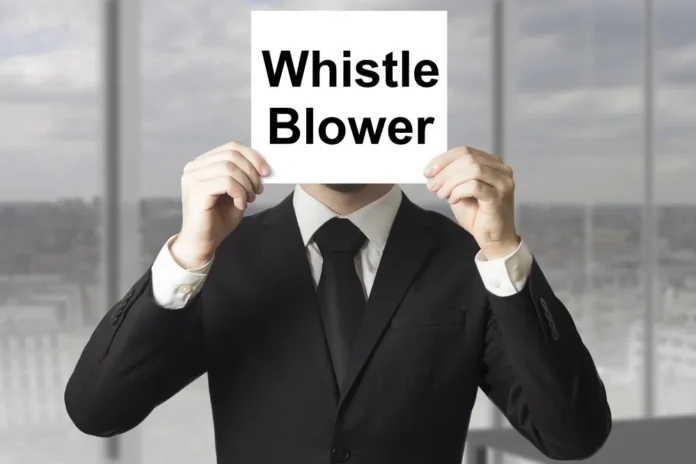By Abdullahi Inuwa
In Nigeria today, the word whistleblower sparks mixed feelings — courage to some, blackmail to others, and mystery to many. But one big question continues to echo across boardrooms, government offices, and social media timelines: who really is behind the whistleblower?
Whistleblowers rarely step into the light. They are faceless, voiceless figures operating in the shadows, armed with documents, recordings, and explosive claims. Their messages land like thunderclaps — shaking governments, rattling politicians, and forcing the powerful to answer uncomfortable questions.
But behind the curtain lies uncertainty. Is the whistleblower an honest insider risking everything to protect public interest? Or is it a disgruntled employee, a political rival, or even a hired blackmailer in disguise?
When Nigeria introduced its whistleblower policy in 2016, the aim was clear: empower citizens to expose corruption. Overnight, whistleblowers became national heroes. Billions of naira were recovered. Hidden stashes of cash were unearthed. For once, the corrupt trembled.
Yet the glow didn’t last long. Soon, the very tool of transparency began to take on a darker shade. Anonymous “whistleblowers” started using leaks as bargaining chips. Reports surfaced of individuals demanding payment to stay silent, blurring the line between justice and extortion.
Now, the once-praised whistleblower has become both savior and suspect.
Analysts warn that many so-called whistleblower cases are not accidental leaks but carefully staged political tools. Rival camps, especially in Kano, Katsina, and Kebbi, have allegedly mastered the art of weaponizing whistleblowing. A leaked document here, an audio clip there — enough to trigger public outrage and weaken an opponent.
“The question is no longer what was exposed, but who is using the whistleblower to fight their battles?” a political observer in Kano told this newspaper.
Beyond politics, an underground economy is thriving. Blackmailers cloak themselves in the noble title of whistleblower, targeting businessmen, public servants, and even traditional leaders. Their demands are simple: “settle or be exposed.”
This has left genuine whistleblowers struggling to be believed, while opportunists exploit the confusion for profits.
Despite the noise, there are still genuine whistleblowers — men and women who quietly risk their safety to reveal the truth. They are employees tired of watching public funds vanish. They are insiders who believe the people deserve to know. They are citizens who refuse to be silent in the face of injustice.
But they rarely get the spotlight. Instead, they are drowned out by fake claims, political drama, and sensational headlines.
So, who is really behind the whistleblower? The answer may be more complicated than the question itself. Sometimes it is the honest truth-teller, other times the cunning extortionist, and often the unseen hand of political rivalry.
One thing is clear: until Nigeria strengthens its systems — protecting the real whistleblower while exposing the impostors — the mystery will linger. And the public will keep asking: is this whistleblowing, or blackmail in disguised.
Abdullahi Inuwa
Social Commentator
ainuwa303@gmail.com




